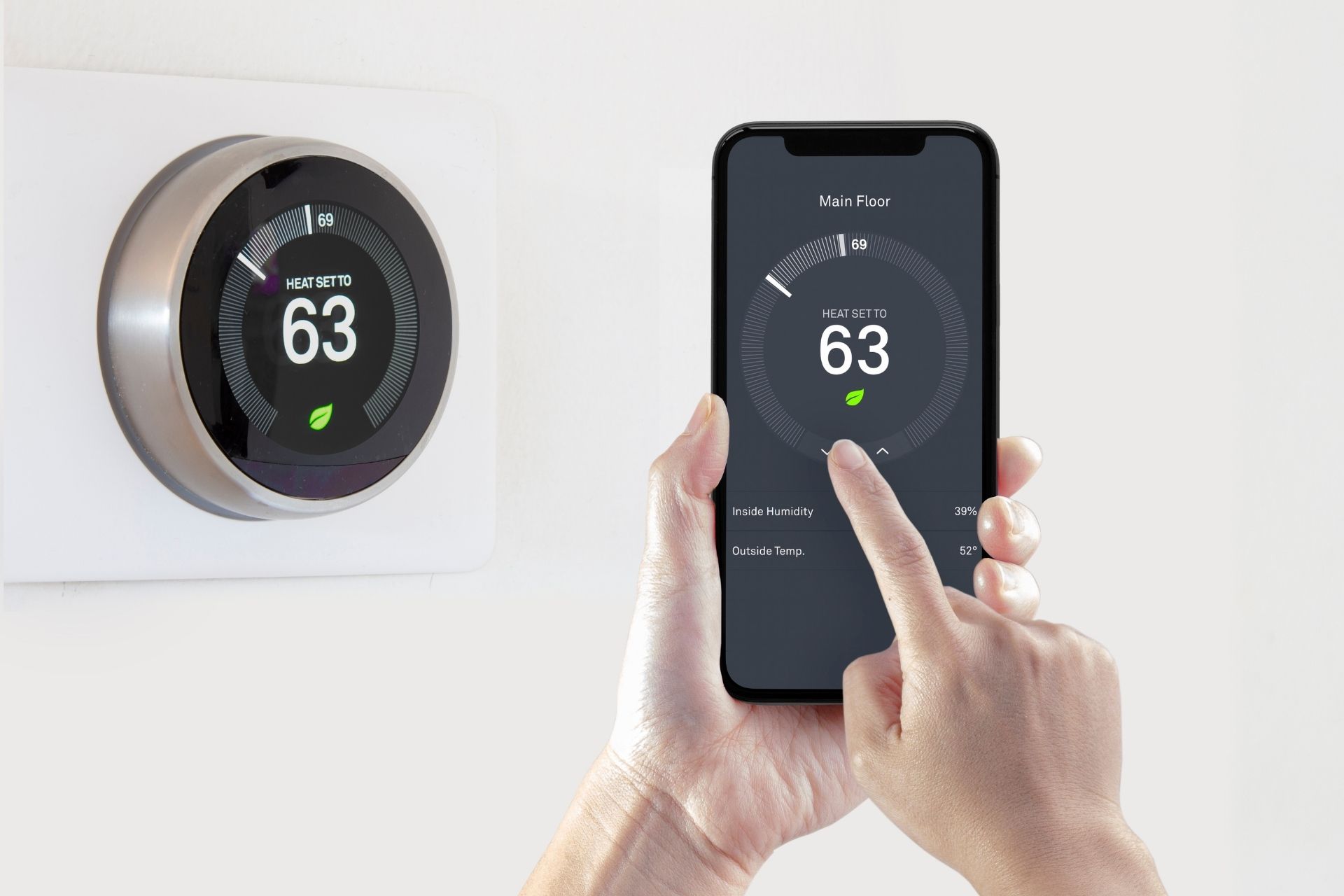The smart thermostat market has witnessed exponential growth over the last decade, driven by the increasing demand for energy-efficient solutions, rising adoption of smart home technologies, and growing consumer awareness about sustainable living. Smart thermostats, equipped with sensors, Wi-Fi connectivity, and intelligent algorithms, allow users to control indoor temperatures remotely through smartphones or voice assistants while learning from user behaviors to optimize energy usage.

These devices are not just gadgets for convenience; they are becoming central components of energy conservation strategies across residential, commercial, and industrial buildings. With climate change concerns and high energy costs on the rise, the smart thermostat market is positioned for robust expansion globally.
Market Overview
The smart thermostat market is part of the broader home automation ecosystem, enabling enhanced control over heating, ventilation, and air conditioning (HVAC) systems. These devices adjust heating or cooling based on occupancy, schedules, weather patterns, and user preferences. Key players offer features such as geofencing, learning capabilities, app-based controls, energy consumption analytics, and integration with platforms like Amazon Alexa, Google Assistant, and Apple HomeKit.
According to market analysts, the smart thermostat market is expected to grow at a compound annual growth rate (CAGR) exceeding 20% over the next five years, fueled by both consumer and regulatory shifts.
Key Market Drivers
1. Growing Focus on Energy Efficiency
Governments and consumers alike are pushing for energy-saving solutions to reduce carbon footprints and utility bills. Smart thermostats are being adopted as a cost-effective method to cut down unnecessary heating and cooling cycles.
2. Integration with Smart Home Ecosystems
Smart homes are no longer futuristic concepts. They are becoming mainstream, and thermostats that integrate with home assistants and other IoT devices are in high demand. The seamless connectivity of smart thermostats is a key growth factor.
3. Rising Adoption in Commercial Spaces
Businesses are recognizing the value of smart climate control systems for managing energy consumption across office buildings, hotels, retail outlets, and healthcare centers. The scalability and data insights provided by smart thermostats offer compelling ROI for enterprises.
4. Incentive Programs and Government Policies
Rebates and tax credits from energy providers and governments encourage the installation of smart thermostats. These programs have significantly boosted the smart thermostat market in regions like North America and Europe.
5. Remote Access and User Personalization
Smart thermostats offer mobile access, learning algorithms, and customization features that enhance user experience. The ability to control temperature settings remotely appeals to tech-savvy consumers and frequent travelers.
Market Segmentation
The smart thermostat market can be segmented into:
By Technology: Wi-Fi, ZigBee, Bluetooth
By Component: Display, Temperature Sensors, Humidity Sensors, Motion Sensors
By Application: Residential, Commercial, Industrial
By Region: North America, Europe, Asia-Pacific, Latin America, Middle East & Africa
Among these, the residential segment dominates due to widespread adoption in smart homes. However, the commercial segment is showing promising growth, particularly in energy-intensive industries.
Regional Insights
North America holds the largest share in the smart thermostat market, primarily due to advanced infrastructure, consumer awareness, and favorable energy policies.
Europe follows closely, with energy efficiency directives and green building regulations driving market adoption.
Asia-Pacific is an emerging market with vast opportunities in urban housing developments and smart cities in countries like China, Japan, and South Korea.
Latin America and the Middle East & Africa are experiencing gradual growth as awareness and internet penetration increase.
Key Challenges
Despite rapid adoption, the smart thermostat market faces several challenges:
High initial cost of installation and devices
Data privacy concerns with connected devices
Lack of interoperability across different smart home platforms
Limited consumer awareness in developing regions
Compatibility issues with legacy HVAC systems
Manufacturers are working to address these issues by offering affordable options, enhancing cybersecurity, and ensuring compatibility with a broader range of systems.
Technological Advancements
Recent innovations in the smart thermostat market include:
AI-powered learning algorithms for predictive temperature adjustments
Geofencing features that detect user proximity for automated control
Voice-command integration with virtual assistants
Real-time energy usage reports and predictive maintenance alerts
Multi-zone climate control for enhanced comfort and efficiency
These developments not only improve functionality but also encourage broader adoption among users seeking high-tech, user-friendly experiences.
Major Players in the Market
Some of the leading companies operating in the smart thermostat market include:
Google Nest
ecobee
Honeywell International Inc.
Emerson Electric Co.
Johnson Controls
Schneider Electric
Tado
Netatmo
Bosch
Carrier
These firms compete on features, design, user interface, energy-saving capabilities, and integration with other smart home devices.
Conclusion
The smart thermostat market represents a critical intersection between technology and sustainability. As global efforts to reduce energy consumption intensify, smart thermostats will play a pivotal role in achieving climate goals while delivering personalized comfort and cost savings.
With rising consumer demand, supportive government policies, and technological innovations, the smart thermostat market is set to redefine how the world approaches climate control in buildings. As more consumers and businesses recognize the value of smart energy management, adoption will continue to accelerate, making smart thermostats a standard feature in modern homes and offices.







